|
You can honestly say of this film by writer/director Macon Blair that they don't make 'em like they used to. "I Don't Feel at Home in This World Anymore" is an American independent film from the 1990s that just happens to have been released this year.
The stakes are small compared to what tends to happen in American movies now; the story is rather slight; the filmmakers pay closer attention to the small details of character interaction than to the fine points of plot. The whole thing is mainly situational: we get to watch the heroine, Ruth Kimke (Melanie Lynskey) as she reacts to having her house broken into and follow along as she decides to locate and punish the people who did it with help from an oddball neighbor (Elijah Wood's Tony), who's enamored with morning stars and nunchucks. Read more
0 Comments
Richard Schickel, who died yesterday at 84, reviewed movies and made movies. He was an influence on a lot of people who wanted to do both things, hopefully as skillfully as Schickel did them.
The 84-year old Milwaukee native directed 21 documentaries about movie actors and directors, including feature-length examinations of the life and work of Bette Davis, Cary Grant, Barbara Stanwyck, Gary Cooper, Myrna Loy, Clint Eastwood, Elia Kazan and Charlie Chaplin. He also wrote and/or directed all-encompassing films about eras and movements, including 1993’s “Hollywood on Hollywood,” about how the film industry portrayed itself, and “Shooting War: World War II Combat Cameramen.” Read more I keep forgetting the title of “A Cure for Wellness” and calling it “The Color of Despair.” It’s an accurate mistake.
As directed by Gore Verbinski ("Pirates of the Caribbean: The Curse of the Black Pearl," "The Lone Ranger"), this film about a New York financial wiz (Dane DeHaan) getting trapped in a creepy Swiss clinic wants to be sickly-dreamy horror epic. It’s a black-and-white movie done in color. The stark photography by Bojan Bozelli creates pools of blackness and acres of negative space. Jenny Beavan’s retro-gothic costuming and Eve Stewart’s production design favor ash, bone, eggshell, curdled cream, and shades of green ranging from bile to moss. If you could nick a David Fincher film’s throat, hang it upside down, and bleed it for two days, it would look like this movie. As a fetish object, it’s impressive. Read more “To be trustworthy is not more important than seeming to be trustworthy.” That line from “Beat the Devil” is delivered by Peter Lorre, of all people—a marvelous character actor but never one cast for his innate trustworthiness. And that’s the joke. “Beat the Devil,” a 1953 film about a bunch of disreputable people scheming to take control of uranium deposits in British colonial Africa, is a movie that always knows exactly what the joke is. And it’s often a funny joke that lands with a sting.
Directed by John Huston from a screenplay co-written with Truman Capote, this curiously laid-back film, which is being re-released to theaters this week in a new digital version, has been described by critic Dave Kehr as “the birthplace of camp.” I’m not sure camp is the correct word for what “Beat the Devil” is, but we might as well just go ahead and accept it in the spirit of a self-aware, often self-deprecating movie that’s filled with characters who always feel emboldened to make up whatever story they wish and represent themselves and their motives however they see fit, and even filch each other’s words when it suits them. Several times in the film you hear a character trot out a particular observation or turn of phrase and then hear it repeated by another character who was there when they said it, in a different context, as if they just made it up on the spot. Read more Toward the end of "John Wick: Chapter Two," a supporting character states that the hero, an emotionally tortured assassin, is addicted to vengeance. Well, yeah—now that you mention it; he’s only been killing people by the bushel for nearly four hours’ of screen time, first to avenge the murder of his dog and the theft of his car, then to redress a betrayal by a crime lord who helped him in the first film and now calls in a favor that Wick can’t refuse.
But the act of mentioning Wick’s revenge addiction makes it funny, and it turns what might've been a somewhat full-of-itself sequel into something faintly mysterious, at once kidding and not-kidding. That’s the Wick trick in a nutshell: making a combination drive-in exploitation flick and arthouse deconstruction of same, while handing academics literary and aesthetic cues like trays of canapes at one of those fancy parties that the hero always transforms into a bloodbath. This sequel to the sleeper hit "John Wick" is the kind of movie that turns subtext into text constantly, blatantly yet playfully, stopping just short of winking at the audience (although on at least one occasion a character actually does wink, at such an angle that the gesture nearly seems directed at us). As Wick gets drawn out of retirement again, coerced into taking one last job and then double crossed and set up as a target, others compare him to the Grim Reaper, describe him as the devil's emissary and the boogeyman, and contextualize him in mythology. At one point another retired assassin who now tends pigeons on a roof—a la Forest Whitaker in Jim Jarmusch's beguiling yet inexplicably almost-forgotten Zen action flick "Ghost Dog: The Way of the Samurai"—gives Wick a gun with exactly seven bullets before leading him to an “Angel Heart”-looking elevator and telling him he's starting his descent into hell. (The retired assassin is played by Sir Laurence Fishburne, star Keanu Reeves' mentor from the "Matrix" films, so of course he savors every line like brandy.) Read more Devotees of David Brent, the foot-in-mouth comic antihero of the original BBC version of "The Office," will watch the quasi-musical road film "David Brent: Life on the Road" no matter what this review has to say about it. But it's still a bit of a shame that this movie doesn't have more to offer than one more go-round for a great character, a bigoted twit who has delusions of musical grandeur but knows deep down how limited he is.
David, of course, is the creation of writer/director/actor Ricky Gervais, who memorably portrayed him on the original series and a follow-up TV movie and has continued to bring him back around occasionally since then, to make guest appearances on the American TV spinoff of "The Office," on concert stages, and in the popular YouTube series "Play Guitar with David Brent." This film, which premiered last year, doesn't have much to add beyond a few biographical details. Read more There's a scene in "Dark Night" where a young woman sits on a curb with police lights washing over her; a tight closeup of one of her eyeballs makes it seem as if the orb is light from within by red and blue. There's also a very long lateral tracking shot in the film of a surly young man walking past a chain link fence, and the diamond pattern of the chain link strobes and flashes as he walks. There's a tight closeup of the eyes of another young man, this one with close-cropped hair, staring while the soundtrack erupts with the sound of photographers' flashbulbs going off and reporters shouting questions, then the movie cuts to a shot from behind the young man's head as he stands in a backyard staring at a house. "Dark Night" has a shot of a parking lot and an adjacent road that swivels and zooms like a Google Earth map, and long static takes of people looking at things: malls; televisions; their own images in the screens of cell phones.
"Dark Night" is a film about the 2012 Aurora massacre, by the way. Read more |
Matt Zoller SeitzFilm critic and filmmaker. Archives
April 2017
Categories
All
|

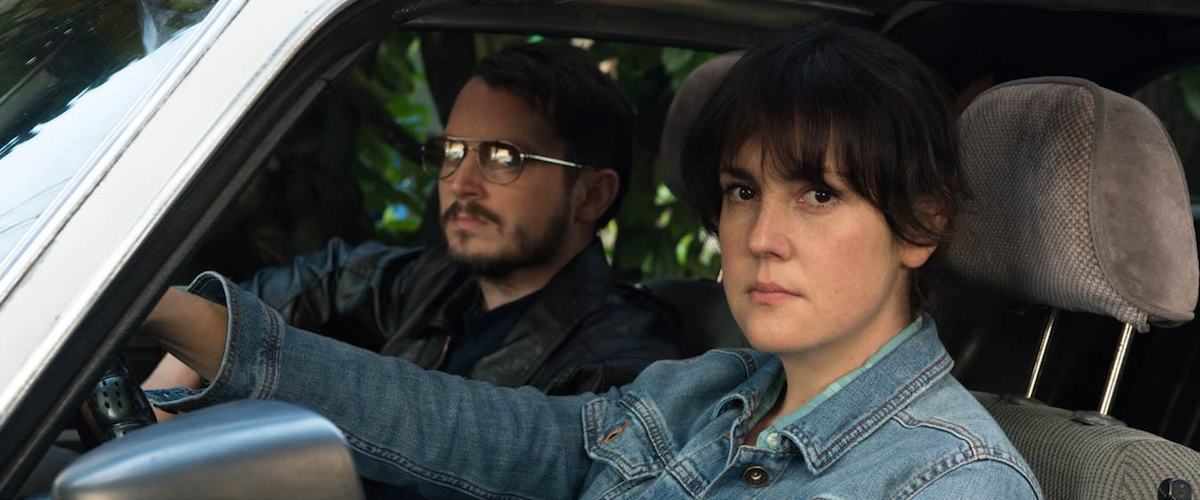
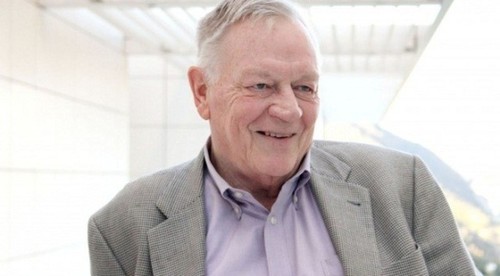
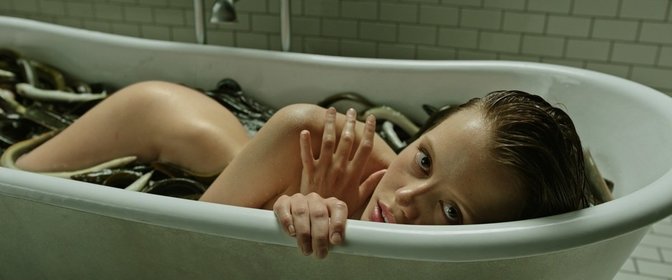
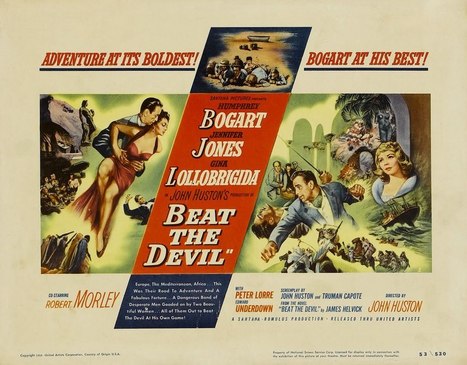
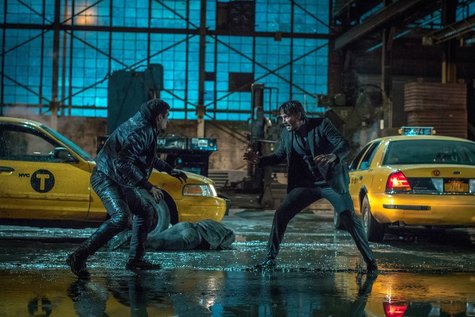
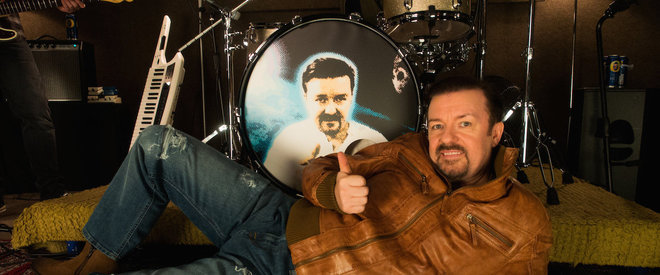
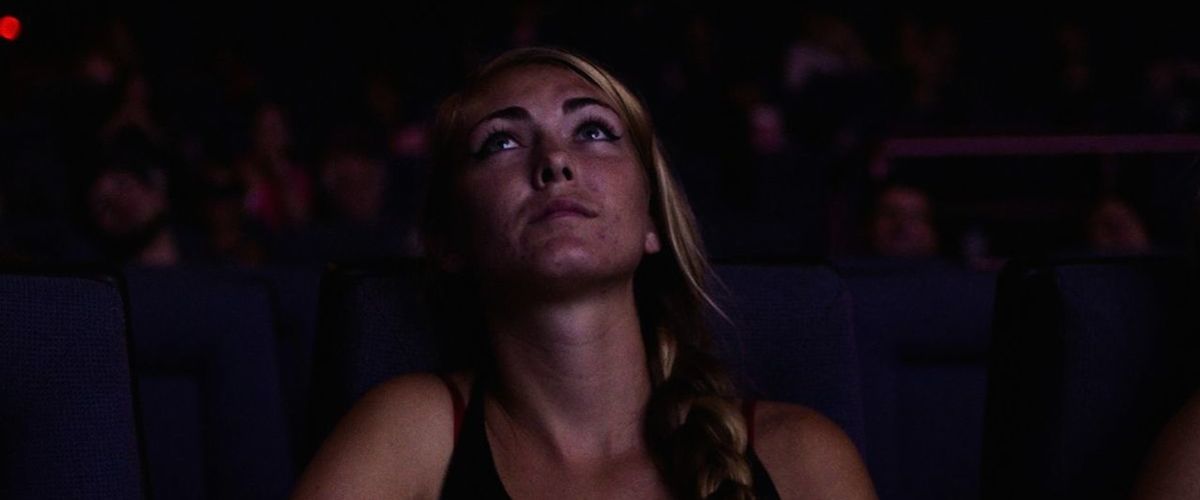
 RSS Feed
RSS Feed